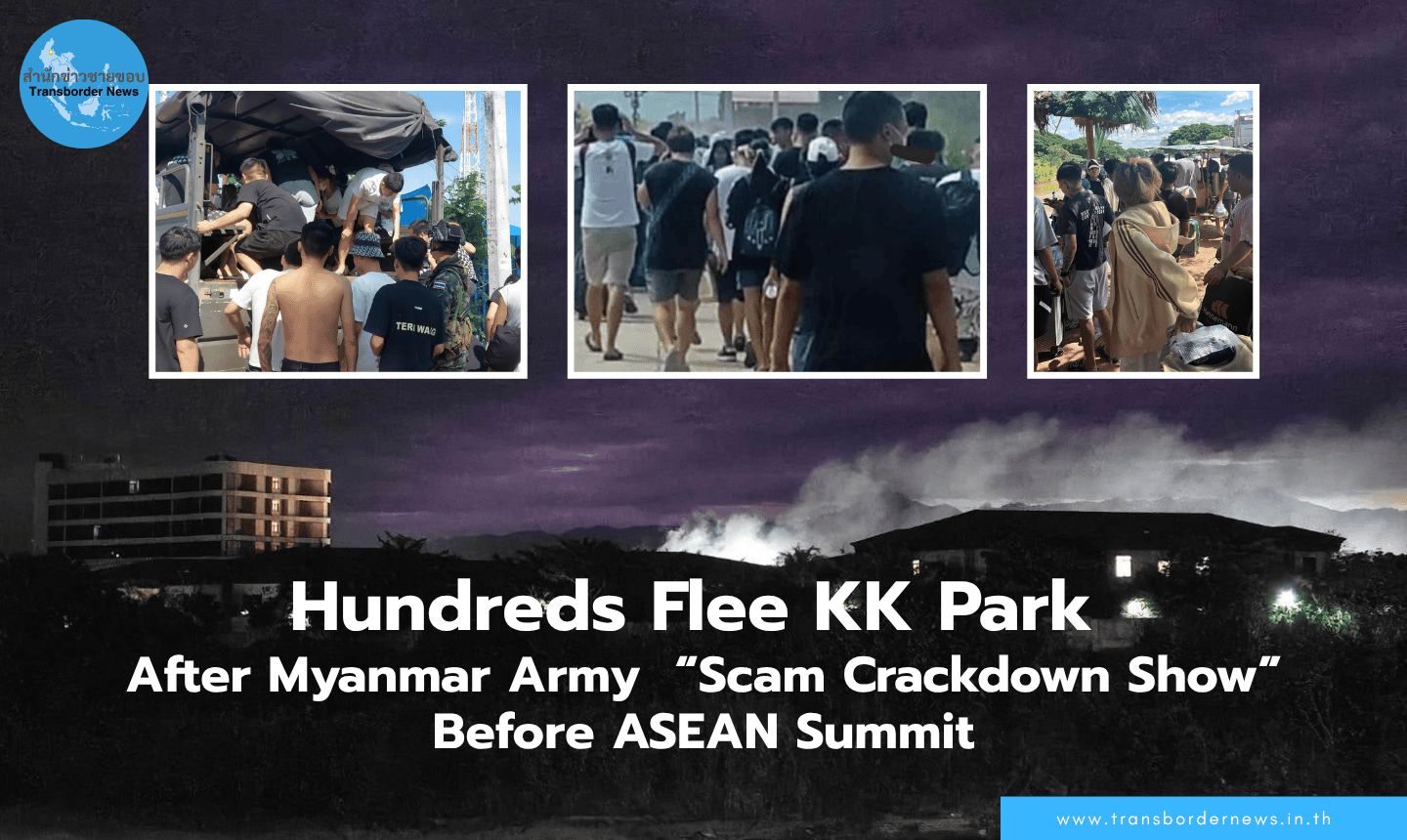Paskorn Jumlongrach

In April 2024, Chinese authorities pressured the Myanmar National Democratic Alliance Army (MNDAA) to withdraw from Lashio, the second-largest city in northern Shan State, Myanmar. The Kokang forces had seized Lashio during Operation 1027, launched on October 27, 2023.
Operation 1027 was a coordinated attack on the Myanmar military by the ethnic alliance known as The Brotherhood Alliance, composed of the MNDAA (Kokang), the Ta’ang National Liberation Army (TNLA), and the Arakan Army (AA), with the powerful United Wa State Army (UWSA) looming in the background.


At the time, relations between China and Myanmar’s junta leader, Gen. Min Aung Hlaing, head of the State Administration Council (SAC), were strained. Some reports suggested that Beijing—the patron of the Wa army—quietly supported the operation.
The Brotherhood Alliance captured extensive territory, including cities like Lashio, where a key SAC regional base was located. Their success became a “model” for other ethnic armed groups, pushing the junta closer to failed-state status.
After Beijing and Gen. Min Aung Hlaing reached an agreement, China pressured the Kokang to return Lashio and demanded the TNLA withdraw from other seized cities, including Nawnghkio, Kyaukme, Hsipaw, Kutkai, Mongmit, and Namhsan. Negotiations held in Kunming remain unresolved, but clearly show China playing all sides for its benefit.
China’s influence over the Wa army and The Brotherhood Alliance is extensive. These groups depend on China, especially the UWSA, which supplies arms to armed groups across Myanmar while maintaining ties with the junta.
The UWSA aims to establish “Southern Wa State” across the eastern Salween River. After the fall of Khun Sa and his Mong Tai Army around 1996, the Wa expanded into southern Shan State near Thailand’s northern border provinces, displacing ethnic communities.
From a small militia, the Wa have grown into a powerful force. Their funding comes from illicit activities—notably narcotics, with Thailand as a key transit point. Despite ongoing enforcement, the drug trade has embedded itself into Thailand’s bureaucratic structure over the last two decades.
In Santisuk village, Mae Chan district, Chiang Rai, a 10-km cable stretches across the Thai-Myanmar border to a Wa military base. Thai officials dismiss it as insignificant, with no serious investigations.
The Wa facilitate Chinese logging, rubber, and corn farming near the border, with profits flowing back to China. Mining operations lack regulation and prioritize profit over safety.
Illegal businesses—casinos, human trafficking, and online scams—are entrenched in Wa-controlled areas near Thailand, yet Thai security forces have taken little action.
Myanmar’s junta benefits from cooperating with the Wa, sharing illicit profits. The military relies on the Wa to maintain territorial control, limiting Thai and Shan State Army South (RCSS/SSA) influence for nearly three decades.
China is fully aware of these dynamics. It benefits immensely and likely views the Wa as its proxy force to safeguard interests in Shan State.
China may arrest rogue Chinese nationals abroad, but it tacitly supports “gray” actors operating illegally in this lawless frontier.
Today, the Wa army is Myanmar’s second-most powerful military force. It manufactures its own weapons and no longer fears Thai or Myanmar authorities, evidenced in several concrete incidents.
Wa bases have encroached into Thai territory at least nine points. Thai forces have attempted negotiations, but the Wa deflect, claiming it’s Myanmar’s responsibility—even though the junta holds little power in Wa zones.
Although the Wa recently withdrew from Nong Luang in Huai Nam Dang National Park, they still occupy strategic areas like Doi Hua Ma, source of the Lang River, vital to communities in Pang Mapha.
Widespread mining near the Kok and Sai river sources in Mong Hsat, southern Shan State, caused devastating floods and mudslides in Chiang Rai and Chiang Mai in September 2024. This shows the Wa’s growing boldness.
Heavy metals from Wa-controlled mines continue contaminating the Kok and Sai Rivers. Despite media attention, the Wa remain unbothered. Thai officials are sent in circles between the junta and the Wa.
Worryingly, the Thai government and security agencies have little intelligence on Wa military or mining activity, despite hundreds of thousands of Thai citizens now affected by toxic water.
As China projects power through armed proxies to Thailand’s borders, Thai state capacity appears to be shrinking.
If Thailand insists on being China’s “model student,” as in the old tributary days, perhaps it should now beg the modern emperor to save us from the Wa threat.
After all, isn’t Thailand already starting to resemble just another Chinese province?
….
See original Thai article https://transbordernews.in.th/home/?p=42472




